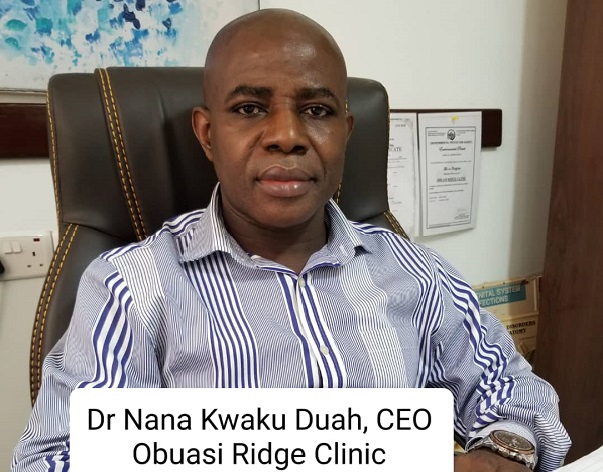
Time to fully reopen schools, economy
Dr Nana Kwaku Duah
Opinion
COVID-19 has had a devastating effect on global economy. Educational systems worldwide have been affected, leading to near closure of schools and universities.
President Nana Akufo-Addo ordered the closure of all educational institutions on March 15, this year, and placed restrictions on other aspects of the economy in an attempt to reduce the spread of the virus.
The Ministry of Education(MoE) and the Ghana Education Service (GES) responded by launching several teaching and learning programmes on television and online.
Despite these efforts to mitigate the effects of school closures, a big challenge remains in ensuring equitable access to these educational services.
The enormous resources invested into these programmes seem not to achieve their intended purposes owing to the fact that a large number of households and schools do not have access to computers, internet, radios and televisions.
It has, therefore, become prudent and urgent to do a risk-benefit analysis on reopening of all schools in the country. The time is now ripe to take a bold and concrete decision based on science and facts devoid of fear, anxiety and pressures.
Facts
The facts in support of full reopening of schools and the economy are as follows:
• COVID-19 is an acute disease and does not usually last more than six weeks.
• COVID-19 is a form of a cold or flu-like disease. Like many other diseases, it can be severe and even cause death, especially in vulnerable groups.
• The people who are most at risk are those aged 65 years and above and/or having underlying medical conditions.
• People aged 18 years or less are less vulnerable.
• The chances of young people (18 years and below) becoming asymptomatic or recovering from COVID-19 remain high.
• Infection rates are lower in children worldwide.
• The ‘severity of a disease and its burden’ is measured by such indicators as morbidity, birth defects, disabilities, fatalities etc. Myths, fear and anxiety have no place in these assessments.
• COVID-19 generally has a relatively low Case Fatality Rate (CFR) in Ghana. The CFR is total number of deaths per total number of confirmed cases. Ghana’s CFR as of July 9, 2020 was 0.6 per cent. The global and United States’ CFRs stood at 4.5 per cent and 4.3 per cent respectively at this same time. The CFR is a measure of disease severity. COVID-19 is, therefore, not synonymous with death in Ghana.
• It is interesting to note that Ghana’s malaria CFR in 2016 was 4.2 per cent.
• Ghana’s case fatality of COVID-19 for the age group ‘18 and below’ has been extremely low and was 0.004 per cent as of July 9, 2020.
• From June 16 to July 9, this year, Ghana’s CFR has persistently been 0.6 per cent and this is expected to fall with time.
• Countries worst hit by COVID-19 even recorded very low or insignificant CFR for people age ‘18 and below’. As of June 22, Italy had recorded 33,498 deaths out of which four were within this age group.
• Sweden did not close down primary and lower secondary schools. It also did not lockdown, contrary to EU directives. Yet, as of July 3, it has recorded 5,420 deaths out of which one was in the age group ‘18 and less’.
• Since the percentage of COVID-19 vulnerable people in Ghana is low, it will be easier and less expensive to direct resources towards them.
• The ‘risk of reopening of schools’ is possible spread of coronavirus and this can be well mitigated by ensuring wearing of face masks, frequent hand washing and social distancing.
• A spread of a disease, with a relatively low CFR, can even be advantageous in the absence of a vaccine. This will accelerate the attainment of herd immunity at a lower human cost, disrupt chain of transmission and even stop or slow spread of the disease.
Conclusion
From the above, it can be concluded that it is safe to fully reopen schools with adherence to COVID-19 preventive protocols. A joint effort is needed by government, institutions and citizens.
The government should ensure the compliance of COVID-19 preventive protocols, support health facilities (both government and private) with personal protective equipment (PPE) and facilitate coronavirus testing.
Citizens, for their part, have to be disciplined in observing the protocols. The opportunity cost of continued closure of schools and the economy is enormous economically, physically, mentally and socially.
The writer is the Chief Executive Officer and Medical Director of the Obuasi Ridge Hospital. He can be reached at: Mobile – 0243720089, email: [email protected]
